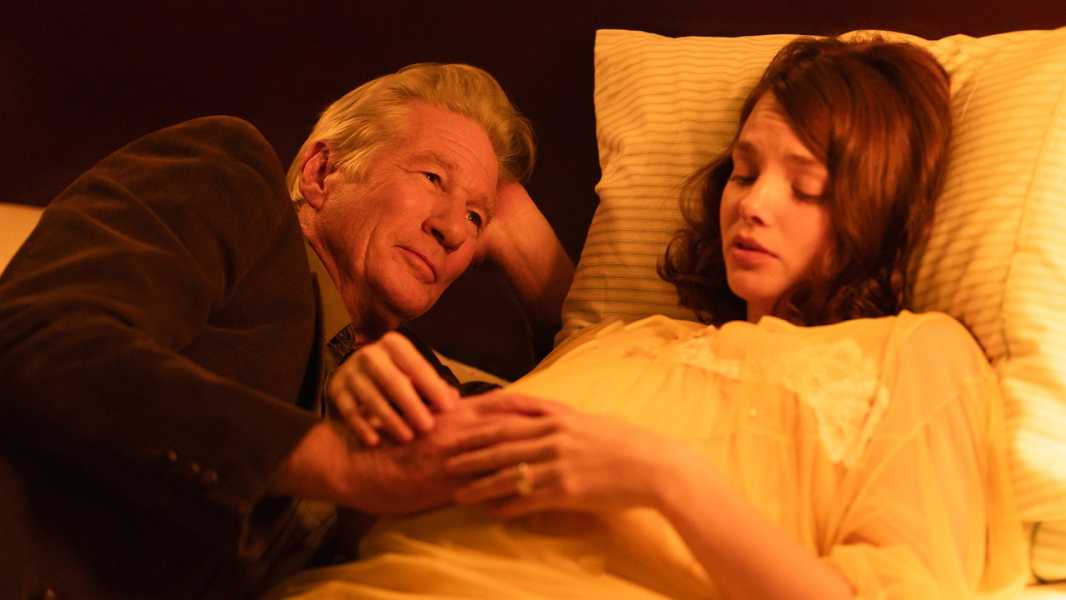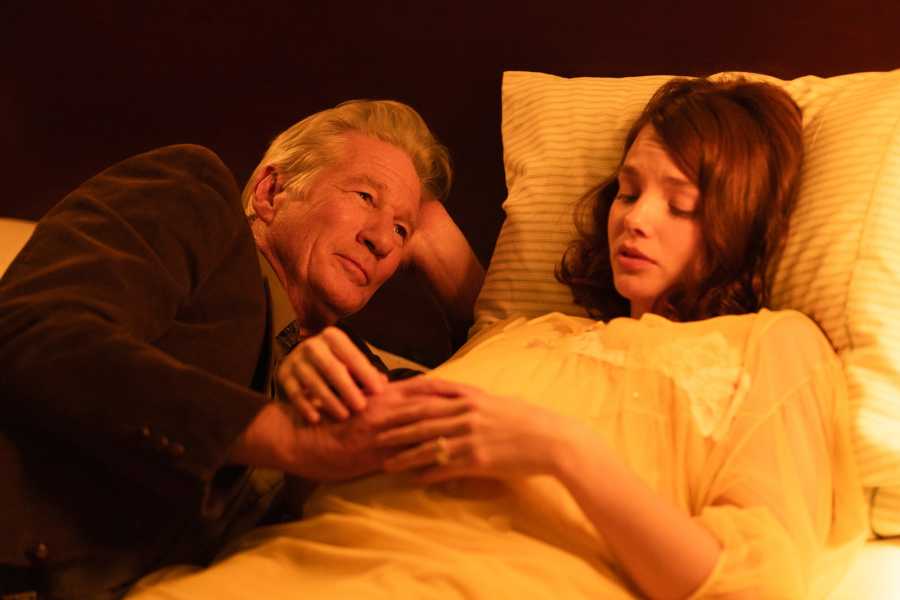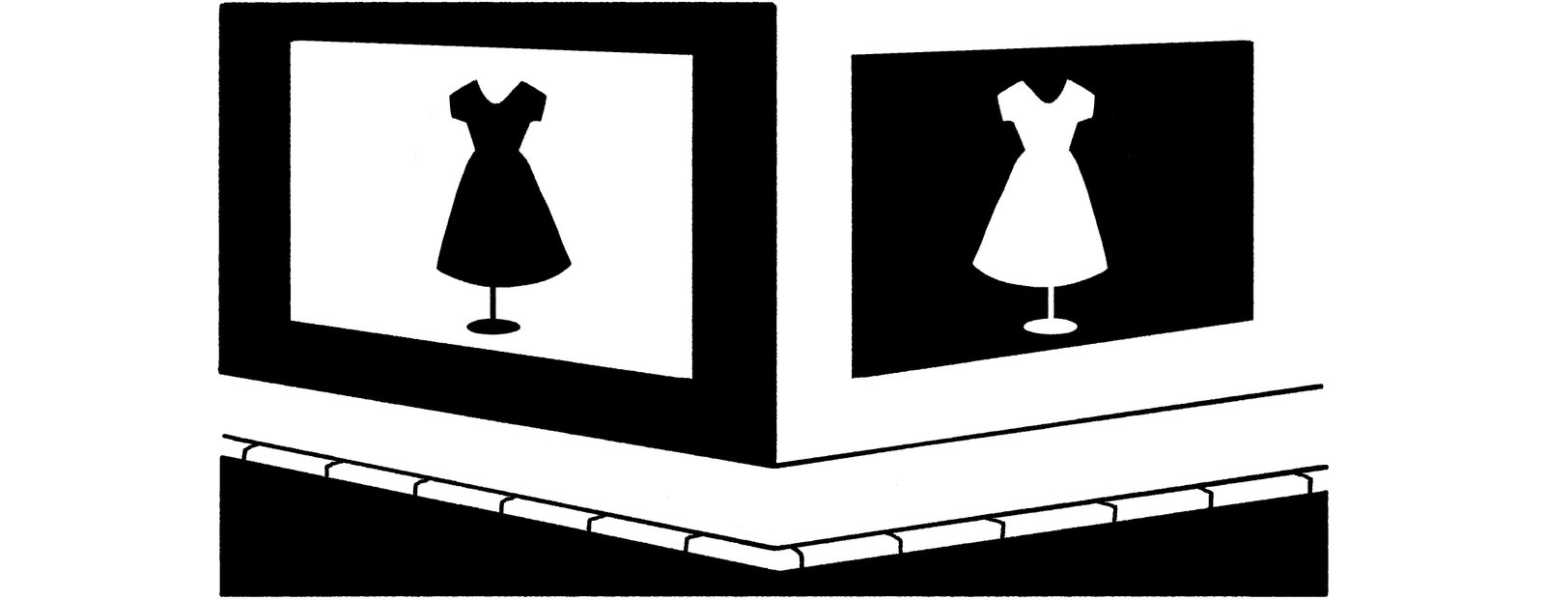
Save this storySave this storySave this storySave this story
Richard Brody
Staff writer
You’re reading the Goings On newsletter, a guide to what we’re watching, listening to, and doing this week. Sign up to receive it in your in-box.
The New York Film Festival, founded in 1963 and held annually at Lincoln Center, is the centerpiece of the city’s year in movies. The 2024 edition, running Sept. 27 to Oct. 14, features remarkable new films in a range of genres. “Oh, Canada” is energized by the reunion of its director, Paul Schrader, and its star, Richard Gere, in their first collaboration since “American Gigolo,” from 1980, Schrader’s sleekest work. “Oh, Canada” is a tale of bitter regret, and it is among Schrader’s harshest films. Gere plays Leo Fife, a documentary filmmaker who’s dying of cancer. Despite pain and discomfort, Leo lets two of his former students film an interview with him—and he uses it as a confession to his wife, Emma (Uma Thurman), of agonizing secrets from his youth in the nineteen-sixties. Schrader, re-creating the past in sharp-eyed detail and deftly interweaving time frames, rages less against mortality than against a lifetime of cold-hearted failings.

Richard Gere and Kristine Froseth in Paul Schrader’s “Oh, Canada.”Photograph by Jeong Park / Courtesy Kino Lorber
In Alain Guiraudie’s thriller “Misericordia,” a young man named Jérémie (Félix Kysyl) returns to a desolate French village for the funeral of a baker who’d mentored him. Jérémie—whose presence in town incites rumors—also sparks conflicts that lead to a suspicious disappearance. The resulting investigation exposes hidden undercurrents of queerness; examining the bonds of tradition, Guiraudie finds them held together by the radical power of sex.
Mati Diop’s documentary “Dahomey”—centered on the repatriation to the West African country Benin of twenty-six art works, looted in 1892 by France—reverberates with cinematic imagination and intellectual insight. Diop’s analytical visual style keenly parses scenes of the transport and display of art and fervent student debates about the works’ return. She also gives boldly literal voice to history, by way of a fictional monologue by King Ghezo (voiced by Makenzy Orcel), a real-life nineteenth-century monarch of the former Kingdom of Dahomey.
This edition of the festival features not one but two new movies by the prolific South Korean filmmaker Hong Sangsoo. “A Traveler’s Needs” is a brief, brisk, yet flamboyantly lyrical vision of a cultural outsider’s inspirations. Isabelle Huppert plays a mysterious visitor in a Korean town who teaches a foreign language with a personalized method that blends documentary attentiveness and literary flair. (Hong should patent it.) “By the Stream” is a wider-ranging, socially diagnostic story of a young art professor (Kim Minhee) who invites her long-estranged uncle (Kwon Haehyo), a once-lauded actor and director, to write a skit for her class, when the intended writer is accused of sexual misconduct. Hong pointedly contrasts the academic community’s alertness to abuses of power with an entrenched political conservatism that stifles artistic expression and poisons personal relationships.
Among the films I haven’t yet seen and am most impatient for are Rungano Nyoni’s “On Becoming a Guinea Fowl,” in which a young Zambian woman discovers the corpse of her uncle, who had sexually abused her, and “Suburban Fury,” a documentary, by Robinson Devor, about Sara Jane Moore, the woman who fired shots at President Gerald Ford, in 1975.
The festival’s revivals section offers new restorations of classics, both familiar and not, including Zeinabu irene Davis’s all-too-rare drama “Compensation,” from 1999, which is one of the greatest American independent films, a two-part depiction of the life of a deaf Black woman in Chicago—first, in the early twentieth century, amid the Great Migration, and then at the end of the century—in close connection with major trends in political and medical history.

About Town
Off Broadway
Gerard Alessandrini created the first version of his “Forbidden Broadway” way back in 1982, and—despite industry panic, the pandemic, and roughly one thousand “Gypsy” revivals—it’s back, with Alessandrini’s latest round of satirical lyrics set to Broadway melodies, “Merrily We Stole a Song.” What keeps his formula fresh is a kind of loving vitriol, the chosen poison of musical obsessives and Broadway completists, a group that is both quick to judge and easy to please. The show can occasionally have a wavering focus, but the impressions are acidly precise: Danny Hayward hilariously nails Jeremy Jordan’s habit of peeking shyly through his lashes, and the hugely impressive vocal powerhouse Jenny Lee Stern outdoes diva after diva by bopping each grande dame with her own characteristic shtick.—Helen Shaw (Theatre 555; through Jan. 5.)
Classical
While Gustavo Dudamel is busy jump-starting the Carnegie Hall season with a glamorous gala—complete with another Gustavo, the baritone Castillo—the Park Avenue Armory has a slightly less ostentatious night planned. The tenor Karim Sulayman, a Lebanese American son of immigrants who fled Beirut during the Civil War, and the guitarist Sean Shibe, who was born in Edinburgh to an English father and a Japanese mother, explore the relationship between Eastern and Western musical traditions. The pair place composers like Britten and Purcell in conversation with Layale Chaker and Tōru Takemitsu, for a meditation on mosaicked identity which challenges the false polarities among traditions in the classical-music world.—Jane Bua (Park Avenue Armory; Oct. 8 and Oct. 10.)
Dance

Photograph by Ben Jackson
The Dayton Contemporary Dance Company, founded in 1968, has long been known for lovingly preserving and performing classic works by African American choreographers. Now it has become the first Black-centered troupe to take on “Esplanade,” a masterpiece of walking, running, and sliding to Bach that Paul Taylor (who was white) made nearly fifty years ago. For the company’s return to the Joyce, it sets “Esplanade” next to “Jacob’s Ladder,” a 2006 tribute to the painter Jacob Lawrence, by the hip-hop authority Rennie Harris, and “This I Know for Sure,” a moody rendering of choreographic process by Ray Mercer.—Brian Seibert (Joyce Theatre; Oct. 1-6.)
Off Off Broadway
In Luis Quintero’s stunning “Medea: Re-versed”—directed by Nathan Winkelstein, in a co-production by Red Bull, Bedlam, and Hudson Valley Shakespeare Festival—the playwright restages the ancient tragedy in a rap idiom, changing Euripides’ flights of Greek lyric into blistering rhymes, rapid-fire stichomythia into an m.c.’s call-and-response. Compression creates thrilling effects: in a swift eighty minutes, a beatboxer, a two-piece band, and an expert, five-person cast capture all the vicious human comedy and contagious moral stain of the original. The theatre is tiny, but the show feels enormous. Sarin Monae West’s Medea is an entire hurricane, and the others—including Quintero himself, as a terrorized chorus leader—become the city in her path, all of it, laid waste.—H.S. (Sheen Center; through Oct. 13.)
Indie Rock

Photograph by Alysse Gafkjen
In recent years, the singer-songwriter Julien Baker has evolved as part of the indie hydra boygenius, a supergroup she co-founded, in 2018, alongside the fellow folk-adjacent rockers Phoebe Bridgers and Lucy Dacus. The band’s music found the overlap among its members’ finespun styles, and its début album, “The Record,” from last year, was nominated for Record and Album of the Year at the Grammys. Before boygenius, Baker’s poignant début, “Sprained Ankle,” from 2015, revealed a confessional artist blurring the lines between faith and addiction, finding God among the pews at church and the stools at the bar. Her weary voice relays longing as well as woe, and subsequent albums have seemed to reflect an only deepening understanding of both self-help and self-harm.—Sheldon Pearce (Webster Hall; Oct. 5-7.)
Movies
Francis Ford Coppola’s imagination is excited above all by power, and his spectacular new movie “Megalopolis” offers a thrillingly audacious premise to explore the idea—and to flaunt it. In a corrupt futuristic city called New Rome, characters and conflicts from the Roman Empire are grafted onto the gaudy amusements, the political battles, and the romantic entanglements of a near-dystopia. A civic-minded genius, Cesar Catilina (Adam Driver), strives to turn his world into a utopia instead, one of abundance and beauty, but his mighty plan—which blends science, art, and urbanism—meets with opposition from Mayor Franklyn Cicero (Giancarlo Esposito) and is complicated by a relationship with the Mayor’s daughter, Julia (Nathalie Emmanuel). Coppola’s passionately triumphalist view of a lone visionary gives rise to images and performances of hectic, extravagant wonder.—Richard Brody (In wide release.)

On and Off the Avenue
The staff writer Rachel Syme shares highly edible culinary delights.
On the wry, gabby, hyper-intellectual podcast “POOG,” the L.A.-based comedians Jacqueline Novak and Kate Berlant interrogate all things wellness. They happily dabble in adaptogen tonics, colonics, and crystals and yet maintain a crucial critical distance. The duo’s running dialogue has developed an army of fans—called, lovingly, “Hags.” On the show, the two often gush about Jar, an old-school steak house near Beverly Hills, where they meet for lychee Martinis, a drink that Berlant describes as “angel’s bathwater.” This August, the pair monetized the obsession, releasing—in partnership with Jar and the California-based cannabis company Rose—a pretty box, about the size of a deck of cards, of lychee-Martini-flavored weed gummies, each containing just one milligram of THC. (Most gummies on the market contain five or ten.) The gummies themselves, called “delights”—starch-based, sugar-dusted, chickpea-size cubes, which resemble Turkish Delight in texture—contain fresh lychee purée, along with an essence of “Italian nipple lemon,” also known as a Femminello. A pack of twenty costs forty-five dollars. As a Hag myself, my interest was piqued.

Illustration by Subin Yang
A few weeks later, I saw on Instagram that Rose was releasing another hyped collaboration, in partnership with four acclaimed chefs—Samin Nosrat, Reem Assil, Fadi Kattan, and Andy Baraghani—of two-mg. delights made with traditional Palestinian ingredients (sumac, black lime, marjoram), whose sales would help seed gardens in Gaza. Then, in late September, Rose launched a savory gummy, in partnership with the San Francisco Italian grocery Aurora Alimentari, which features the golden Datterini Gialli tomato and neon-green basil powder (and three mg. of THC). Unlike most other edibles purveyors, who sell their wares solely through dispensaries and tend toward dated, hippie-ish design, Rose seems to be positioning itself more as a luxury fashion brand would, with its online, limited-edition “drops,” of-the-moment foodie collabs, and elegant packaging.
Nathan Cozzolino, Rose’s founder, told me that until the company—which has its own cannabis farm and test kitchen—launched their online direct-to-consumer business this past fall, they “barely sold at all.” In the California retail market, he explained, “an edible is seen as just a vehicle to deliver cannabinoids,” not necessarily as an object of aesthetic or culinary merit. Rose’s edibles with less THC are intended more for social use. (Rose does make a few stronger delights, but Cozzolino enjoys the microdose, he told me, because he can “still function. It just provides a little twist on the day.”) In a year of selling online—to states where cannabis is legal—Rose’s sales have increased fourfold. With its buzzy releases (a collaboration with Oakland’s Snail Bar is coming up) and unique flavors (salty plum, Magical Grape, ground-cherry cola), Rose is aiming to stand out as uniquely high end.
P.S. Good stuff on the Internet:
- Song of the postmaster
- This group chat about group chats
- Fran Lebowitz schools Julia Louis-Dreyfus
Sourse: newyorker.com






